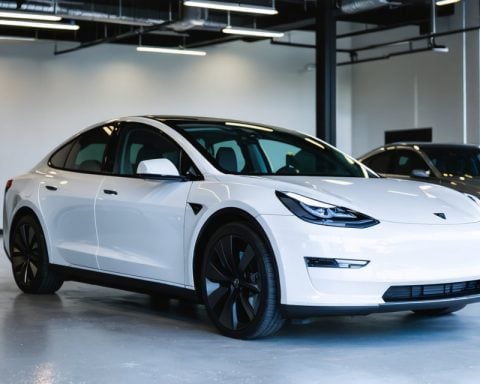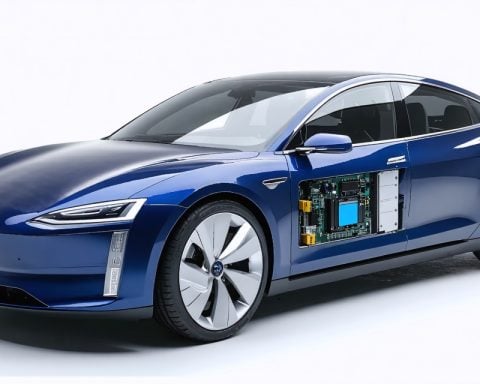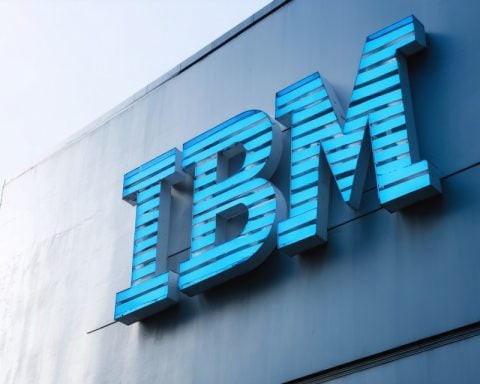The electric bus industry is on the verge of a remarkable transformation, projected to experience significant growth in the coming years. According to recent research by Technavio, the global electric bus market is anticipated to surge by $21 billion between 2024 and 2028. This substantial growth represents an impressive CAGR of 16.3%, highlighting the sector’s robust potential.
A key factor driving this upward trend is the decline in battery costs, making electric buses more accessible. Additionally, the increasing acceptance of wireless charging technologies is reshaping how electric buses are integrated into public transport systems. However, the industry faces challenges, notably a decrease in public transport users, which may impact overall demand.
Prominent players in this evolving market landscape include AB Volvo, BYD Co. Ltd., and Mercedes-Benz Group AG, alongside others like Hyundai Motor Co. and Proterra Inc. These companies are at the forefront of innovation, striving to meet the rising demand for sustainable transport solutions.
The report charts the course for the electric bus market from its 2023 bases through to 2028, encompassing various regions such as APAC, which commands an impressive 87% of market contributions. As cities worldwide embrace greener public transport options, the electric bus sector is poised for rapid advancement.
The Future of Public Transport: Electric Bus Market Insights and Innovations
The Electric Bus Industry Revolution
The electric bus industry is positioned for an extraordinary transformation, driven by multiple factors that signal a promising future. Recent research predicts that the global electric bus market will grow by $21 billion from 2024 to 2028, reflecting a compound annual growth rate (CAGR) of 16.3%. This growth not only showcases the increasing demand for eco-friendly transport solutions but also indicates significant advancements in technology and infrastructure within the sector.
Key Drivers of Growth
Decreasing Battery Costs
One of the most influential elements contributing to this growth is the decline in battery costs. With cheaper and more efficient battery technologies emerging, electric buses are becoming a more viable option for cities looking to modernize their public transport systems. This decline also extends to improvements in battery efficiency, extending the range and operability of electric buses, thereby attracting more municipalities to invest in these technologies.
Wireless Charging Technologies
The incorporation of wireless charging technologies is another crucial innovation redefining the electric bus landscape. These systems enable buses to charge while in motion or at bus stops, enhancing their operational efficiency and minimizing downtime. This technological advancement could significantly alter how public transport is perceived and utilized, making electric buses even more compelling to cities seeking greener transportation solutions.
Challenges Facing the Industry
While the outlook is generally positive, the electric bus industry is not without challenges. A notable worry is the decrease in public transport users, particularly in the wake of the COVID-19 pandemic which shifted commuting patterns. This decline can have ripple effects on demand for electric buses, emphasizing the need for innovative strategies to revive public trust and ridership in urban transport solutions.
Major Market Players
The market features several key companies pushing the boundaries of electric bus technology, including:
– AB Volvo
– BYD Co. Ltd.
– Mercedes-Benz Group AG
– Hyundai Motor Co.
– Proterra Inc.
These companies are not only enhancing their electric bus offerings but are also investing in research and development to address emerging challenges and sustainability goals.
Regional Insights
The Asia-Pacific (APAC) region is set to dominate the electric bus market, contributing a staggering 87% of total market shares. Countries like China have expanded their electric bus fleets significantly, setting a precedent for sustainable public transport. As urbanization continues to grow in APAC, the reliance on electric buses is expected to increase substantially.
Pros and Cons of Electric Buses
Pros:
– Environmentally Friendly: Electric buses produce zero tailpipe emissions, contributing to reduced air pollution.
– Cost-Effective in the Long Run: Lower fuel and maintenance costs can lead to overall savings for municipalities.
– Noise Reduction: Electric buses are quieter than their diesel counterparts, enhancing urban livability.
Cons:
– Initial Investment: The upfront costs for electric buses and charging infrastructure can be high.
– Range Limitations: Some electric buses may have limited range compared to traditional buses, affecting their usability.
– Charging Infrastructure Needs: Extensive infrastructure must be developed to support widespread adoption.
Looking Ahead
As cities worldwide increasingly commit to environmental sustainability, the electric bus market is set to rise in response to urban transport needs. Innovations like advanced battery technologies and wireless charging systems will likely play pivotal roles in shaping the future of public transport.
To explore more about the electric bus revolution and its potential impact on global cities, visit Technavio.












